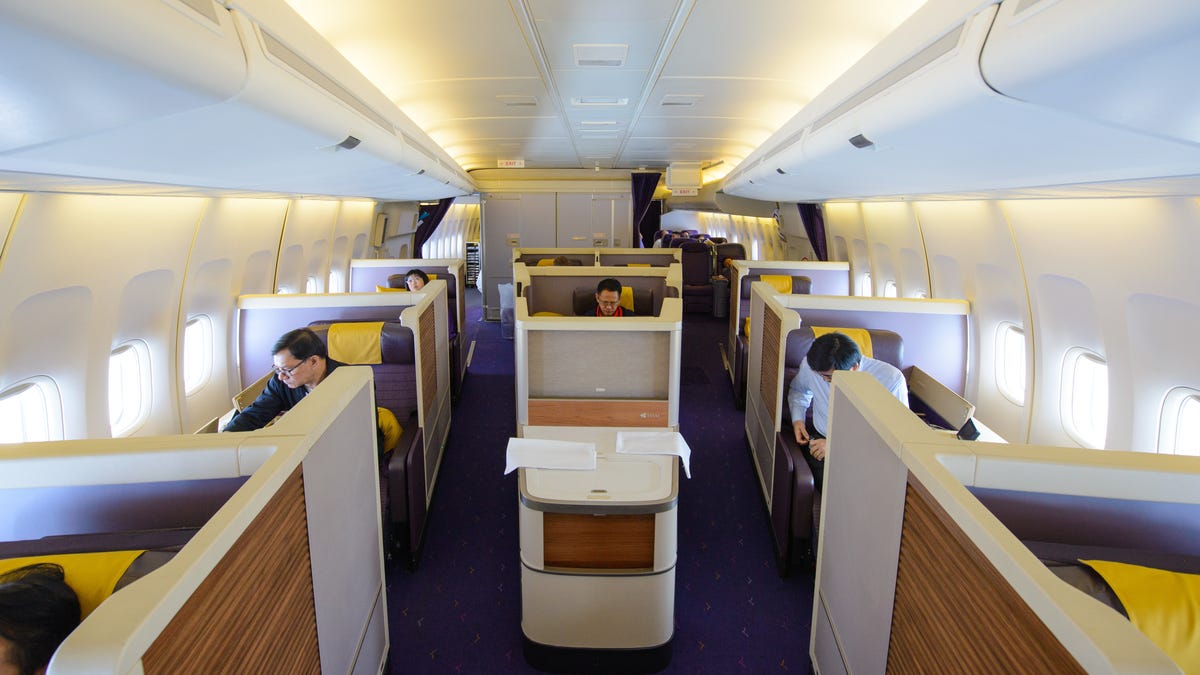Flying First Class Won't Keep You Safer from COVID - 3 minutes read
 Photo : Brostock ( Shutterstock )
Photo : Brostock ( Shutterstock )It’s been about seven months since air travel as we knew it changed amid the novel coronavirus outbreak. Now as people are slowly starting to fly again—with even more expected to take the plunge during the holiday season—the question is how to do so in the safest way possible. One idea floating around is that flying in the first-class cabin gives you a bit more distance between you and your fellow passengers, and therefore must come with a reduced risk of COVID-19 transmission. But there’s more to it than that. Here’s what you should know before shelling out the extra money for a ticket upgrade.
Advertisement
Why first class may seem safer
When you think about it, the theory makes sense. According to a survey conducted by the International Air Transport Association, 65% of participants said that sitting next to someone with COVID-19 on a plane was their biggest concern about air travel. So naturally, having more personal space—like you would in first or business class—could help alleviate those concerns.
Advertisement
There’s also the idea that having fewer people in first class could also reduce the risk of transmission. As a recent article in CN Traveler points out, this isn’t just the case when you’re actually on the plane: “From check-in to boarding and deplaning, premium passengers usually face smaller lines and less commotion throughout their journey.”
But is it actually safer?
In short, not really. CN Traveler posed this question to two infectious disease experts, and neither seemed to think that flying first class is a safer option for travelers from the perspective of COVID-19 transmission risk.
Advertisement
According to Dr. David Aronoff, director of the division of infectious diseases at Vanderbilt University Medical Center, there’s no data to support the idea that first class passengers are safer from COVID-19 than their counterparts in economy. He does, however, point out that he sees the logic in assuming the risk is lower with fewer people in the cabin, “but it’s hard to say that it is really worth that extra amount of money,” he told CN Traveler.
As it turns out, the hospital-grade HEPA air filters used on planes are not limited to the first class section—they offer the same level of protection regardless of where you’re seated. “It really doesn’t make much difference where you sit on the plane,” Dr. Mark Gendreau, chief medical officer at Beverly and Addison Gilbert hospital, told CN Traveler. “What’s most important are the precautions we are carrying out: face masks, proper hand hygiene, sanitizing surfaces. The air carriers are doing their part disinfecting the cabin between flights, and they’ve stepped it up. The last thing they need is a rash of infected cases on their airplanes.”
Advertisement
I f you’re in a position (thanks to points or money) to be able to afford first class, sure, it’ll probably be a more comfortable and pleasant travel experience (as was always the case outside, pandemic or no ). But it’s not your ticket to safer flight.
Source: Lifehacker.com
Powered by NewsAPI.org